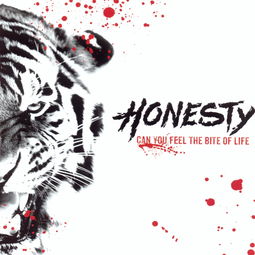
Can Wasps Bite?
Have you ever wondered if wasps can bite? This question often arises when encountering these buzzing insects, especially during the warmer months. In this article, we will delve into the world of wasps to answer this question and provide you with a comprehensive understanding of their behavior and potential risks.
Understanding Wasps

Before we address the biting question, it’s essential to understand what wasps are. Wasps belong to the order Hymenoptera, which also includes ants and bees. There are over 30,000 species of wasps worldwide, and they can be found in various habitats, from forests to urban areas.
Wasps are divided into two main groups: social wasps and solitary wasps. Social wasps, such as yellowjackets and hornets, live in colonies and have a highly organized social structure. Solitary wasps, on the other hand, live alone and do not form colonies.
Can Wasps Bite?

Yes, wasps can bite. While most wasps are not aggressive and will only bite in self-defense, some species are more prone to biting. Here are a few reasons why wasps might bite:
-
Defense: If a wasp feels threatened or cornered, it will bite to protect itself.
-
Feeding: Some wasps, like hornets, may bite to defend their food sources or larvae.
-
Reproduction: Female wasps may bite during mating rituals or to defend their nests.
What to Expect from a Wasp Bite

Wasp bites can cause pain, swelling, and redness. In some cases, they may also lead to allergic reactions, which can range from mild to severe. Here’s what you can expect from a wasp bite:
-
Pain: A wasp’s stinger is barbed, which means it can remain in the skin after the insect has left. This can cause a sharp, stinging pain.
-
Swelling and Redness: The area around the bite may swell and become red.
-
Allergic Reactions: In rare cases, individuals may experience an allergic reaction to a wasp bite, which can include symptoms like hives, difficulty breathing, and anaphylaxis.
Preventing Wasp Bites
Preventing wasp bites is crucial, especially if you have allergies or are sensitive to their venom. Here are some tips to help you avoid wasp encounters:
-
Stay Calm: If you encounter a wasp, remain calm and avoid sudden movements. This will reduce the chances of provoking an aggressive response.
-
Do Not Swat at Wasps: Swatting at wasps can provoke them to bite. Instead, gently brush them away with a broom or other object.
-
Keep Food Covered: Cover your food and drinks when outdoors to prevent wasps from being attracted to them.
-
Remove Nests: If you have a wasp nest on your property, it’s best to remove it. You can do this yourself or hire a professional exterminator.
Dealing with a Wasp Bite
If you are bitten by a wasp, here’s what you can do to alleviate the pain and swelling:
-
Remove the Stinger: If the stinger is still in your skin, gently scrape it out with a credit card or your fingernail.
-
Apply Ice: Place a cold compress or ice pack on the bite area to reduce swelling and numb the pain.
-
Take Pain relievers: Over-the-counter pain relievers, such as ibuprofen or acetaminophen, can help alleviate pain and reduce inflammation.
-
Seek Medical Attention: If you experience severe symptoms, such as difficulty breathing or swelling of the throat, seek medical attention immediately.
Conclusion
While wasps can bite, they are generally not aggressive unless they feel threatened. By understanding their behavior and taking appropriate precautions, you can minimize the risk of being bitten. If you do get bitten, knowing how to treat the wound can help alleviate pain and swelling. Remember,







